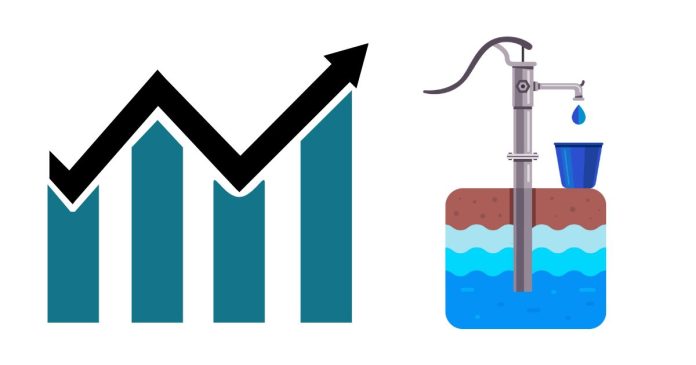Why Has Groundwater Use Increased Over Time?
Groundwater is a vital resource that supports drinking water supplies, agriculture, and industrial processes. Over time, its use has significantly increased, driven by various factors. Understanding why groundwater demand has surged can shed light on the challenges and opportunities associated with managing this crucial resource.
Growing Population and Urbanization
One of the primary reasons for increased groundwater use is the rapid growth of the global population. As cities expand and rural areas develop, the demand for water has risen sharply. Groundwater often serves as a reliable source for public water supplies, especially in areas where surface water resources are limited or seasonal.
Urbanization also amplifies groundwater reliance. Paved surfaces and infrastructure can reduce natural recharge rates, forcing cities to extract more water to meet the needs of residents, industries, and businesses.
Agricultural Expansion
Agriculture accounts for a significant portion of global groundwater usage. As the world’s population grows, so does the demand for food. Farmers increasingly turn to groundwater for irrigation, especially in arid and semi-arid regions where rainfall is insufficient. Modern irrigation technologies, while efficient, have also made it easier to extract large quantities of groundwater, sometimes at unsustainable rates.
Climate Change and Variability
Climate change has altered precipitation patterns, making surface water supplies less predictable. In many regions, extended droughts or irregular rainfall have pushed communities to depend more heavily on groundwater as a stable and consistent source. Groundwater serves as a buffer during times of water scarcity, helping to sustain agriculture and livelihoods.
Industrial Growth
As economies develop, industrial water needs increase. Many industries, such as manufacturing, mining, and energy production, require large quantities of water, much of which is sourced from underground aquifers. Groundwater’s availability and quality make it an attractive option for industrial use.
Overreliance Due to Accessibility
Groundwater is often easier to access than surface water, particularly in regions without major rivers or lakes. Advances in drilling technology have made it possible to extract groundwater from deeper aquifers, further fueling its use. However, this accessibility can lead to overextraction, with significant consequences for long-term sustainability.
Consequences of Increased Groundwater Use
While groundwater has become a critical resource, its overuse comes with significant risks:
- Aquifer Depletion: Excessive pumping can lower water tables, making it harder and more expensive to access groundwater.
- Land Subsidence: In some areas, overextraction causes the ground to sink, damaging infrastructure and ecosystems.
- Water Quality Issues: Overuse can lead to contamination or the intrusion of saltwater into freshwater aquifers.
Moving Toward Sustainable Groundwater Management
To address the challenges of increased groundwater use, sustainable management practices are essential. These include:
- Promoting water conservation and efficient use in agriculture and industry.
- Enhancing natural recharge through rainwater harvesting and land-use planning.
- Implementing policies to regulate extraction and monitor aquifer health.
Final Thoughts
The rise in groundwater use over time reflects humanity’s growing needs and ingenuity in tapping hidden resources. However, it also underscores the urgent need for responsible management to ensure that groundwater remains a viable resource for future generations. By balancing development with sustainability, we can protect this invaluable resource and the ecosystems that depend on it.


